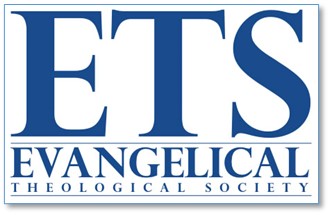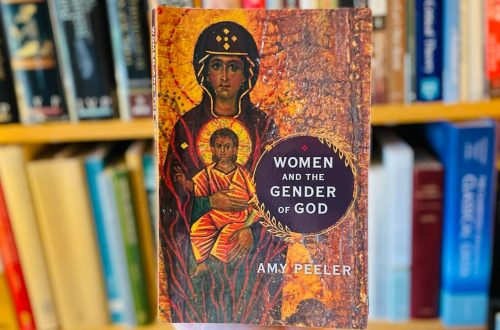Well, another annual meeting of the Evangelical Theological Society (ETS) is now in the books. I returned home late Thursday night from Fort Worth, TX, where this year’s gathering was held. For those of you who don’t know, the ETS is a society of theologians and biblical scholars who are dedicated to biblical inerrancy and a belief in the Trinity. At the annual meeting, members come together to present academic papers, meet with publishers, and catch up with old friends. Keep in mind that I only experienced a narrow slice of things, but here are my reflections on what I saw nonetheless.
1. Fort Worth and Nostalgia
I confess that I was really excited about being in Forth Worth. My earliest memories of life are all set in Fort Worth when my Dad was a student at Southwestern Baptist Theological Seminary (SWBTS). I was probably only 2 or 3 years old when we moved there, but I distinctly remember the red carpet at Travis Avenue Baptist Church, the Water Gardens in downtown, the apartment we lived in near campus, and the famous dome of SWBTS. I got to see all four of those while in town, so this trip was filled with no little bit of nostalgia for me. Indeed, the Water Gardens were right across the street from my hotel. My only regret was not being able to visit Crowley (just south of Forth Worth) where we lived after seminary and where I was baptized. Next time.
2. CBMW Dinner
Every year the Council on Biblical Manhood and Womanhood (CBMW) hosts a small banquet the night before ETS to engage and encourage complementarian scholarship. It is always such a rich time of fellowship and discussion with likeminded brothers and sisters. I first attended one of these when I was a Ph.D. candidate myself many years ago, and I am pleased that we are still able to continue this event. Not only did we have a number of council members present (including Lig Duncan, Erik Thoennes, Jim Hamilton, and myself), but we were also pleased to welcome two of our founders—John Piper and Wayne Grudem. They began CBMW over 30 years ago, and it isn’t often that we all get in the same room anymore with these two founders. But thankfully this year we did. I cannot overstate how grateful I am for both of these men and their faithfulness over the years. We all owe them so much. Joe Rigney delivered what is without question one of the best lectures I’ve ever heard at one of these events. It was on natural law and complementarity and will be appearing in the Spring issue of Eikon. Keep your eyes peeled for this one.
3. Transgender Conversation
Earlier this year, Preston Sprinkle graciously agreed to participate in a special session reviewing his new book on transgenderism titled Embodied: Transgender Identities, the Church & What the Bible Has to Say (David C Cook, 2021). After Preston was on board, we added Andrew Walker, Keith Johnson, and Rachel Gilson as reviewers and panelists, and we were off to the races.
I won’t rehearse the whole session, but here’s the gist of it. Andrew and I were mainly critical of Embodied while Keith and Rachel were largely supportive. Even though there is much that I agree with in Embodied, the book has some serious shortcomings as well, not the least of which is Preston’s approach to transgender identities. While he rightly recognizes that a person’s so-called “gender identity” should follow their biological sex and that transitioning is wrong, he nevertheless treats the matter as a third-order doctrinal point. This comes out in the way that he talks about his transgender friends. He says that some who embrace a transgender identity are the most godly Christians that he’s ever met. He also says that the church needs more such transgender members not less.
As I stated in my critique, it is a de facto affirming position to accept unrepentant transgender persons as church members, and that is the position reflected in Embodied. It doesn’t matter if you have the correct, biblical view on transgender identities if you treat the matter with the same level of doctrinal weight as differences over the “rapture” or millennial views. If you say that a person can be a “godly” Christian without repenting of a transgender identity, then you are affirming transgender identities no matter what your ethical calculation may otherwise be.
There was much more to the discussion, but I’m not going to reproduce it all here. You can listen to the recording whenever it becomes available. In the meantime, many thanks to Preston and the other panelists for their participation. It was a stimulating session.
4. Egalitarian Paper
I missed most of the papers in the “Evangelicals and Women” session, but there was one presentation that caught my eye. It was John McKinley’s paper titled “Seven Things That Need Revision in Complementarianism.” I was very interested in what he had to say for obvious reasons. Even I can think of some things in complementarianism that need shoring up. We aren’t above critique after all. But that is not what McKinley’s paper was. It wasn’t really offering ways to strengthen complementarianism but ways to eviscerate the doctrine. McKinley claims among other things that…
- Jesus has displaced “authority and power” and replaced them with “humility and service” (p. 1). Nevermind that this contention runs directly against texts like Luke 4:36; 9:1; 10:19; Eph. 1:21; and Rev. 12:10. McKinley argues that any notion of male headship is vitiated by Jesus’ example of humility.
- The Bible teaches us not “to act more like a man or to act more like a woman, but to act more like Jesus” (quoting Aimee Byrd). McKinley says that the Bible is less concerned with distinct roles or callings for men and women than it is with calling men and women to be more like Jesus. He even claims that “the biblical accounts of men and women doing various things… are not sufficient to be guides for people to repeat in modes of being women and men” (p. 3, emphasis mine).
- The biblical idea of headship (e.g. 1 Cor. 11:3, Eph. 5:23) has nothing to do with authority and submission. He claims that “Paul’s point is not at all about male authority” (p. 5). Rather, “Paul creates an entirely new meaning of the head… about the head’s service for the benefit of the body” (p. 5).
- He claims that “readers of our most popular translations (especially the ESV) hear an unintentionally distorted biblical voice that God speaks primarily to men and about men, leaving women to the margin as less valuable and less important to God” (p. 5). As a result, Bible translations need to move away from generic masculine expressions like “man” or “mankind.”
- Women need to be given opportunities to teach and lead men in “complementarian” churches. It is unjust to block women from “speaking before the whole church” or from “supervision over male staff members” (p. 6). Astonishingly, McKinley further claims that “the lists of ministries given by the Spirit are not gendered, including the ministry of pastors” (p. 7, emphasis mine).
- McKinley says that complementarians need to forge a “third way” between complementarianism and egalitarianism. That third way will reject notions of male authority and instead recognize “that men and women are called to care for each other as friends, allies, siblings, spouses, and co-workers conditioned by humility to support each other” (p. 7). This third way of “gender humility” will affirm “women to teach the Word and do other ministry to all the church” (p. 8). After all, “the lists of ministries in the churches embrace both genders, including the ministry of pastors and teachers” (p. 9).
As you can see, McKinley has staked out a position that is largely indistinguishable from egalitarianism. The only difference between his view and egalitarianism is that in his view churches “may” limit the office of overseer to qualified males. He says churches may have such a limitation but not that they must.
After his presentation, I raised my hand to respond, approached the microphone, and asked this question. “If you are going to allow women to take up all the roles and functions of a pastor, then why in the world would you prohibit them from pastoral office? The latter limitation seems arbitrary.” And that is indeed my central problem with this model. It’s not any kind of complementarianism. What’s worse, it’s not biblical. It is warmed-over egalitarianism and ought to be recognized as such.
5. Mohler’s Presidential Address
Albert Mohler served as president at this year’s meeting, and many of us were looking forward to his delivery of the annual presidential address. I won’t rehash the entire presentation. You can read it for yourself when it is published in JETS next year. But the gist of it is this. Given the pressures of modernity and secularism, Christians are going to be forced to define and defend the truth of scripture. If we fail to define ourselves, our witness will be overcome by forces hostile to Christianity. That is that challenge that all Christians in the West face today, and it is no less a challenge for the Evangelical Theological Society. The ETS only has two doctrinal standards—an affirmation of inerrancy and an affirmation of the Trinity. Other than that, the sky is the limit. Currently, for example, there is nothing in ETS’s doctrinal statement to prevent a man from delivering the next ETS presidential address in a dress.
Mohler is simply reiterating something that Ray Van Neste once observed. In the wardrobe of doctrinal statements, the ETS’s statement is a bikini. It covers some essentials but otherwise leaves far too much exposed. This has been a perennial problem in the ETS and is only going to become more acute in the days ahead. I have personally already heard an ETS member deliver an address from an LGBT-affirming position. Given our paltry doctrinal standard, I don’t see what would prevent more of that from happening in the future. That is Mohler’s point, and he is absolutely right to sound the alarm.
The problem is that I’m not sure that there is anything to be done. Ray and I led an effort fourteen years ago to beef up our doctrinal basis after the sitting ETS president became a Roman Catholic. That effort went nowhere. Since that experience, I have not been able to detect any popular support for improving our doctrinal basis. For understandable reasons, no one wants to open that can of worms because there is a real fear that we may never get the lid back on. Nevertheless, unless popular support for a stronger doctrinal basis emerges, I suspect the ETS will be subject to the drift that Mohler warns about in his address.
6. The Business Meeting
At the end of his 2016 presidential address, Dan Wallace reminded ETS members and guests that the ETS is not the “Evangelical Complementarian Society.” He concludes, “I pray that we can get past our insecurities, and fears of other viewpoints, and ennoble our brothers and sisters who may disagree with us” (emphasis his). In the last five years since that address, there seems to have been a concerted effort to put more female scholars and egalitarians in leadership positions within the society.
Those efforts have continued apace, and this year saw the election of Karen Jobes to the Vice-Presidency (which means that she will eventually serve as President) and of Sandra Glahn to the all-important nominating committee. The historic nature of this was not lost on the president of Christians for Biblical Equality, Mimi Haddad, who wrote afterward, “In tears. Historic moment at ETS. Sandra Glahn voted onto the Nominating committee. Karen Jobes voted onto the Executive committee. @CBEInt praise God.”
Three of the six nominees to the nominating committee were from one school—Dallas Theological Seminary. They were Sandra Glahn, Darrell Bock, and Glenn Kreider. Two of the three of them were elected (Bock and Glahn) along with Jim Hamilton who hails from Southern Seminary.
That means that the committee that determines the future leadership of the society now includes Craig Keener, Sandra Glahn, Darrell Bock, Jim Hamilton, and Albert Mohler. By my count, it looks like egalitarians are poised to dominate the leadership of the Society for the foreseeable future. We’ll see if this trend continues next year.
7. Best Moment
There was one session featuring papers about the Chicago Statement on Biblical Inerrancy. When I saw this session in the program, my interest was immediately piqued by the papers to be given by John Woodbridge and Wayne Grudem, both of whom were instrumental in the drafting of that important declaration. Unfortunately, Woodbridge could not be there, so Robert Yarbrough read Woodbridge’s paper on his behalf.
Afterward, Wayne talked about the legacy of the Chicago Statement and placed its importance right alongside Nicea and Chalcedon. He also spoke of his own personal involvement in the project. He was a lowly young student at the time and claimed that he really had no business even being in the room. But he asked Ed Clowney for an invitation, and Clowney got one for him. So Wayne ended up being present for the drafting of one of the most consequential documents in the history of North American evangelicalism. Wayne also told the story of a revision he suggested that enabled Pentecostals and charismatics to support the final draft of the statement. They otherwise would have been excluded.
At the end of Wayne’s narrative, Gregg Allison stood and put his arm around Wayne and asked if he had any final exhortation for those gathered. After a long pause, Wayne looked at us and quoted Proverbs 30:5: “Every word of God proves true; he is a shield to those who take refuge in him.” I’m pretty sure I wasn’t the only one who had something in their eye at that point. It was a singularly powerful moment that I will never forget.






